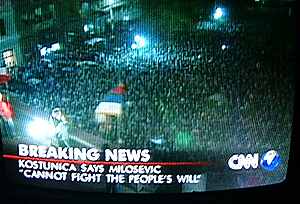By Johan Galtung
March 2010
Conflict Worker: What is it you really want? What are the goals?
Slovene: We are a nation with the same right as any other nation, through self-determination for the first time to have our own state. We want to be ruled neither from Vienna nor from Belgrade, but from Ljubljana and, in a broader European context, from Brussels. Our small minorities are safe in a democracy with human rights.
Croat: We are a nation with the same right as any other nation, through self-determination, again to have our own state. We want to be ruled neither from Vienna nor from Belgrade, but from Zagreb and, in a broader European context, from Brussels. Our minorities can feel safe in a democracy with human rights.
Serb in Croatia: The Croats can have their own state, but they have no right to take the Serbs in Croatia with them. We do not want to be ruled from Zagreb that killed us during the war, in an alliance with Nazi Germany.
Bosniak: We are a nation with the same right as any other nation, through self-determination, once again to have our own state. We want to be governed neither from Istanbul, Vienna nor Belgrade, but from Sarajevo, and, in a broader European context, from Brussels. Our minorities can feel safe in a democracy with human rights. [Read more…]
